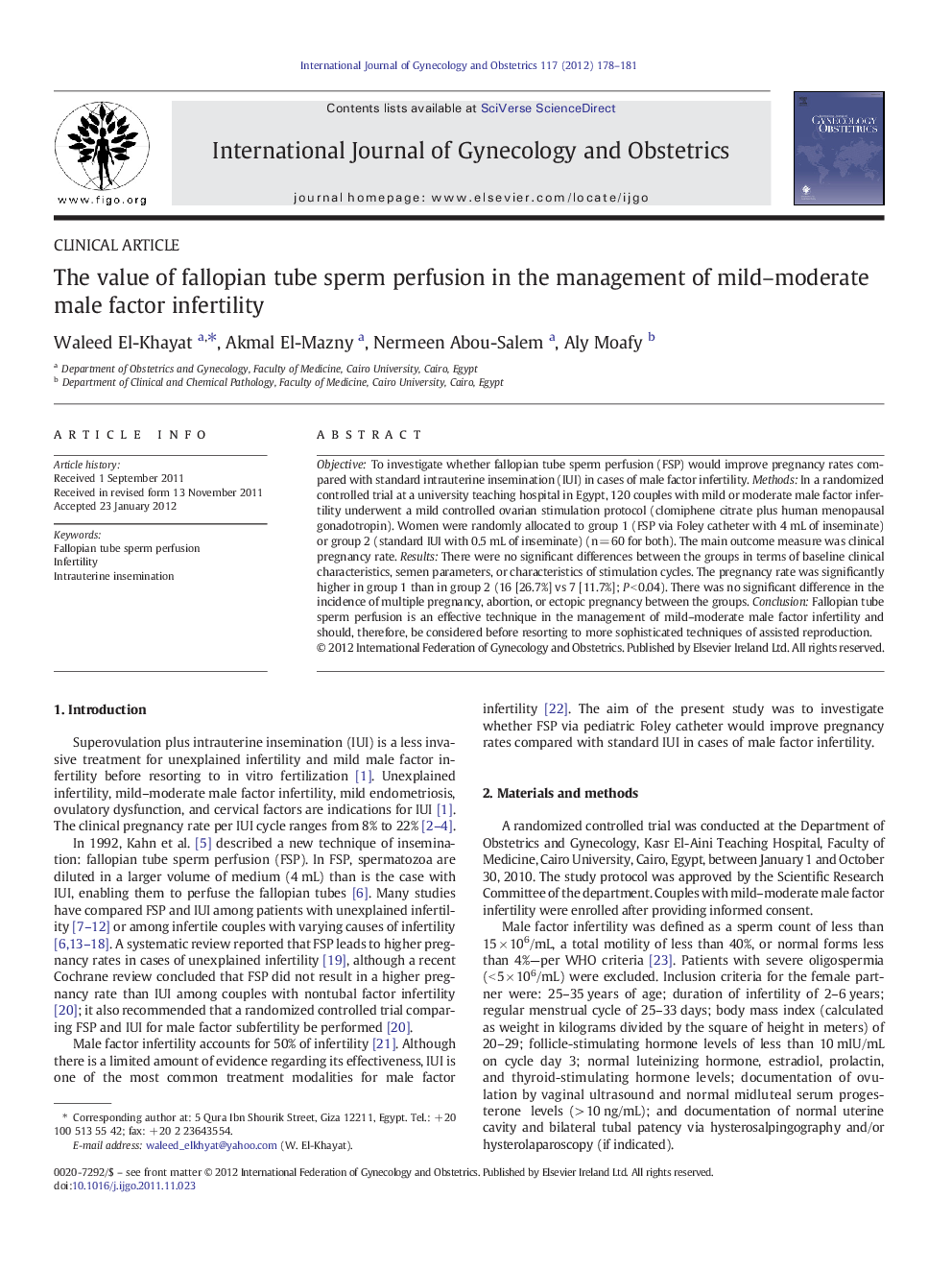| Article ID | Journal | Published Year | Pages | File Type |
|---|---|---|---|---|
| 3949184 | International Journal of Gynecology & Obstetrics | 2012 | 4 Pages |
ObjectiveTo investigate whether fallopian tube sperm perfusion (FSP) would improve pregnancy rates compared with standard intrauterine insemination (IUI) in cases of male factor infertility.MethodsIn a randomized controlled trial at a university teaching hospital in Egypt, 120 couples with mild or moderate male factor infertility underwent a mild controlled ovarian stimulation protocol (clomiphene citrate plus human menopausal gonadotropin). Women were randomly allocated to group 1 (FSP via Foley catheter with 4 mL of inseminate) or group 2 (standard IUI with 0.5 mL of inseminate) (n = 60 for both). The main outcome measure was clinical pregnancy rate.ResultsThere were no significant differences between the groups in terms of baseline clinical characteristics, semen parameters, or characteristics of stimulation cycles. The pregnancy rate was significantly higher in group 1 than in group 2 (16 [26.7%] vs 7 [11.7%]; P < 0.04). There was no significant difference in the incidence of multiple pregnancy, abortion, or ectopic pregnancy between the groups.ConclusionFallopian tube sperm perfusion is an effective technique in the management of mild–moderate male factor infertility and should, therefore, be considered before resorting to more sophisticated techniques of assisted reproduction.
